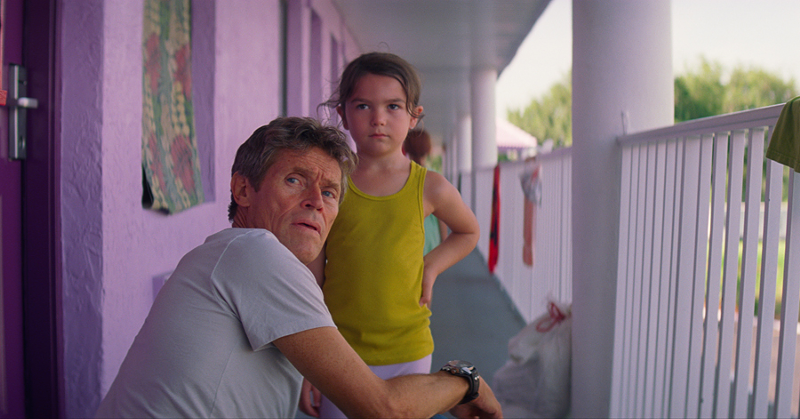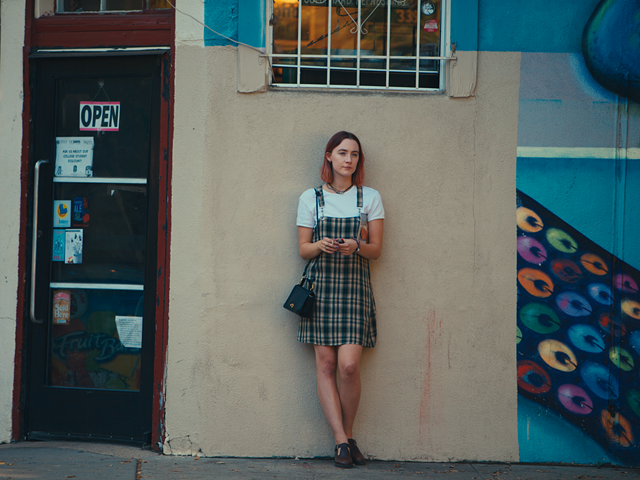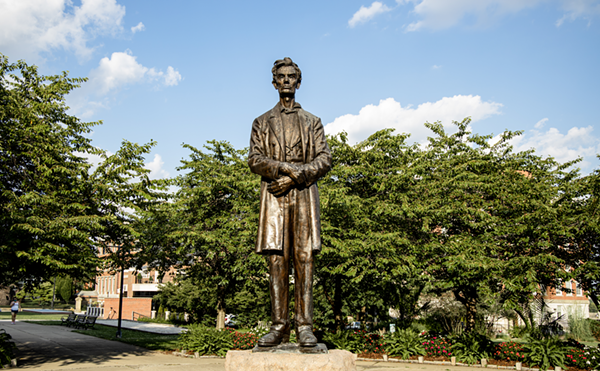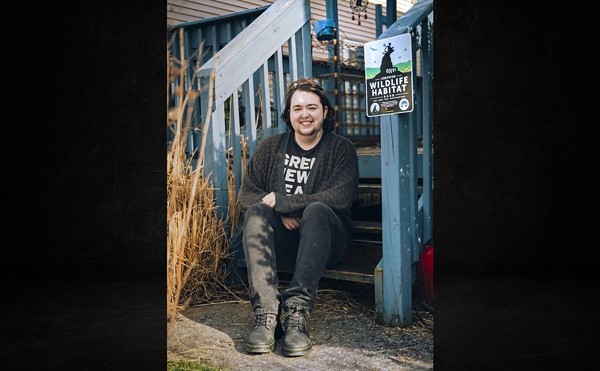We see what we want to see; that’s how invisibility actually works. There’s nothing miraculous or special about being unseen. While it served as a metaphoric superpower for the Invisible Girl in the Fantastic Four comic book series, in real life it can define the forgotten rather than the extraordinary.
In The Florida Project, the latest film from Sean Baker (Tangerine), we see a little girl, a rambunctious six-year old named Moonee (Brooklynn Prince) with a smart mouth and a carefree attitude (truth be told, she’s all attitude). We can’t help but see her sass and spunk and her wonderful sense of abandon. She is a wild child, a real-life Peter Pan freed from social order and even the strictures of what we might appreciate as magic realism. Moonee makes her own magic or luck, and she does it, intriguingly, in the squalid shadow of Disney World. But to those who visit that tourist destination, she’s invisible. (Walt Disney initially referred to his Orlando theme park as “the Florida project” when it was being planned.)
Curiously, we never see that Magic Kingdom in this film, much as it dominates the image of Orlando to the nation as a whole.
But then again, neither does Moonee, because she can’t afford to cross its hallowed gates. Moonee and her ragtag crew of crafty playmates (Valeria Cotto and Christopher Rivera) live in a low-rent motel, unseen by everyone except the other hapless denizens of this marginalized realm.
Baker lifts the veil of invisibility from our eyes, training his camera on Moonee and Halley (Bria Vinaite), her mother. Halley is ferociously fighting for life. She is an impossible mixture of bottomless love and bad choices; the tragic reflection of what may await Moonee, maybe a decade down the road. And that is exactly what Baker shows us with an unflinching gaze, which renders the fleeting moments of fun in starkly beautiful relief. He makes sure that we see a darker alternative to what Stevie Wonder meant in the title to his song “Joy Inside My Tears.”
The falling tears don’t belong exclusively to us (and our newly opened eyes), though. Our emotional stand-in through The Florida Project is Bobby (Willem Dafoe), the overworked manager of the motel complex where Moonee and Halley reside. As if written specifically for his richly craggy face, the character taps all of the warmth and charm heretofore unexplored in most of Dafoe’s work, a deep reservoir of humanity that feels like the second coming of his Jesus from Martin Scorsese’s The Last Temptation of Christ.
Bobby sees that Moonee’s childish pranks lack malicious intent, but there’s a longing to protect her from the days ahead when life will crack her open and empty all of the joy from her tiny body. Bobby loves Halley enough to offer her chances to make her life and situation better, even though he knows she is not in a position to take advantage of them. None of that matters to him. He shows us how to see others’ faults and frailties and to continue to forgive.
If it is easy to reference the righteous anger and judgment of the Old Testament, then The Florida Project presents a modern example of the New Testament’s call to love the lowest and least-protected in society. The only way to achieve this is to truly see this otherwise invisible class.
Take away the religious overtones for a moment, while daring to embrace the spirituality, and it is plain that Baker has crafted the perfect film for festivals. I caught The Florida Project at Toronto, where audiences tend to feast on such fare. There, we see characters like Moonee, Halley and Bobby, who seem so different from us yet so authentic, and we leave the theater eager to share our stories of connection with them. It makes us feel good to relate to their experience from this safe distance.
But we shouldn’t mistake what we are seeing in the frames of Baker’s Project. There is something real and pressing in this vision that requires us to remain attuned to the plights of people like Moonee and Halley. The challenge, for audiences, is to step inside Bobby and walk in his shoes, to embrace the cold reality with all of the undying warmth in our hearts. (Opens Friday at Esquire Theater.) (R) Grade: A






